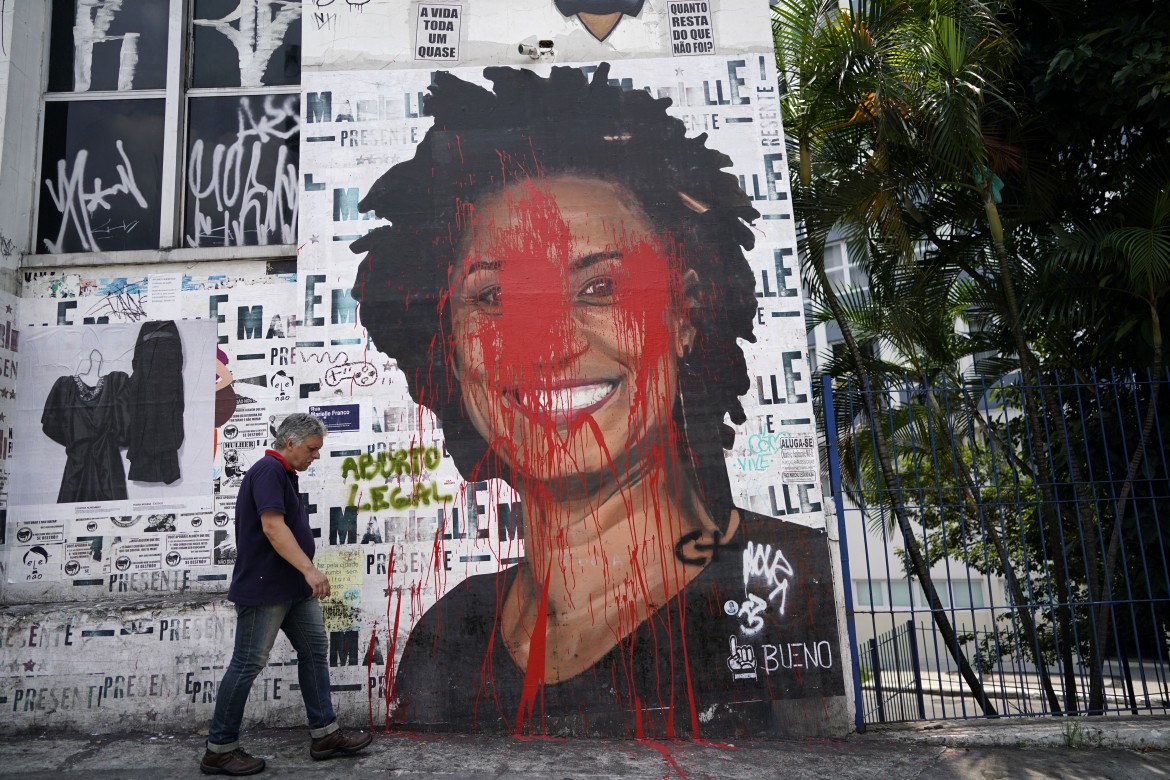Letter
In Brazil, the picture is less gloomy thanks to Marielle Franco
Marielle’s murder has led to a wave of mobilization that has gone beyond the borders of Brazil, and her death reminds us how valuable the practice of international solidarity is. With the help of these networks, the struggles are being waged with renewed strength.

If we look at the legacy of Marielle Franco and the battles and victories won by the black movement, the women’s movements and the feminists, this can give us a more complex and multifaceted view on the grim picture of Brazil that emerged with the election of Bolsonaro last November.
While Bolsonaro was indeed elected with a political project based on sexism, racism, homophobia, transphobia and worsening class inequalities, at the same time, the number of women elected from left-wing parties was higher after the last elections: among the newly elected we find Joênia Wapixana, the first indigenous woman elected to the Chamber of Deputies in the history of Brazil, and Érica Malunguinho, the first trans black woman deputy from the country’s northeast. Furthermore, the number of black female deputies has risen overall, although it is still much too low, at just five, in a country where over half the population is black.
Thus, the election of Bolsonaro was also a reaction, full of resentment and political hatred, on the part of those who have realized that their class, race and gender privileges are being replaced with rights for all. It was a reaction against the successful struggles carried out in recent decades by black women, feminists, non-heteronormative persons, the black movement and the indigenous peoples.
Marielle’s political activities as part of the City Council of Rio de Janeiro were bothersome to many, as she fought against the historical practice of silencing oppressed groups, a practice carried out by the groups possessing greater social privilege: in particular, by white, heterosexual, middle-class men. Black women from the lower classes, indigenous people and black people have always resisted and forged their own traditions of knowledge, fighting the experience of oppression. Marielle embodied this practice of resistance, and carried it inside an institutional space that traditionally used to belong to white, heterosexual men from the middle classes. The presence of her body, as a political body, in this space, and the policies she defended, still carry force today, precisely because they demonstrate the ability to have a voice in places where such a voice used to be denied.
Marielle’s mandate represented a collective and social space where discourse could be uttered from her standpoint as a woman, black, socialist, feminist, lesbian, mother, and favela dweller—a place for speech, from which she would at the same time denounce and attack the material and epistemic violence of racism, sexism, lesbophobia and transphobia, capitalism and the policies of military intervention aimed at waging war on the poor. Even more: all of us who, while not sharing the same social standing as she had, identified with her political project could recognize ourselves in her political mandate.
Marielle, together with many other black and trans women who are now occupying spaces that have been historically denied to them, are all saying that their words and their discourse about the world is legitimate, and are challenging the system of authorizing particular discourses, a system that claims to establish which subjects and which bodies are entitled to describe reality, name it and govern it.
It is absolutely critical to recognize and defend all these places for putting forward one’s own discourse and exercising power that have been conquered by those who are oppressed and have to suffer constant attempts to be silenced—even by murder—to ensure that they are put “back in their place.” […]
With her presence on the City Council, Marielle demonstrated that it was possible to leave the “place” that had been socially assigned to her from the start, and, because of this, the simple fact of being there made her presence a “hostile” one. There is a real fear among the dominant groups that the subjectivities who are being oppressed will speak out, and that they themselves will have to listen.
As Djamila Ribeiro wrote: “When black persons claim the right to have a voice, they are claiming the right to their own lives” (O que é o lugar de fala, 2017). It is no coincidence that Marielle had problems with not being allowed to speak during Council meetings: “I will not be interrupted.” Her speech and her body made the dominant subjects uncomfortable, because the problems of the favela dwellers, of women, of black youth and of lesbians—people whom she represented—are all problems that belong to the whole of society.
Marielle’s murder has led to a wave of mobilization that has gone beyond the borders of Brazil, and her death reminds us how valuable the practice of international solidarity is, creating a web of relationships of support and sharing; with the help of these networks, the struggles are being waged with renewed strength. In Italy, the most prominent form this has taken has been feminist solidarity, especially by the Non Una Di Meno movement, which was able to welcome and promote Marielle’s political project, organizing meetings with Monica Benício, Mariella’s fiancée, and Fernanda Chaves, one of Marielle’s assistants and the only survivor of the assassination.
With shared passion, we have tried to collectively understand her political destiny, which, despite the differences between our two countries, is now pushing us to analyze how racism manifests itself in Italy today, how it is interwoven with sexism and lesbo-homo-transphobia, and how it is given shape in institutional policies.
With passion and determination, we continue to build feminist alliances that reach across every border, with Marielle forever in our hearts.
Extract from the afterword to “Marielle Presente!” by Agnes Gazzera, to be published by Capovolte, with an introduction by Marie Moïse and a special message from Mônica Benício.
Originally published at https://ilmanifesto.it/brasile-il-quadro-e-meno-cupo-anche-grazie-a-marielle-franco/ on 2019-03-12
